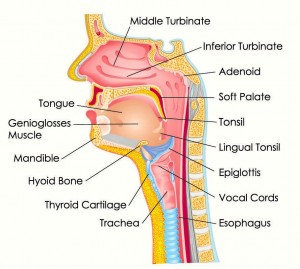Top Motivations to Consult an ENT for Persistent Health Concerns
Checking out the Field of Otolaryngology: What to Expect When You Speak With an ENT
Otolaryngology, typically described as ENT, incorporates the medical diagnosis and treatment of ear, throat, and nose disorders. For those experiencing related issues, consulting an ENT professional can offer clarity and alleviation. Comprehending what to expect throughout such examinations is necessary for reliable interaction and treatment. This introduction will describe vital elements of the ENT experience, consisting of typical factors for sees and the processes associated with diagnosis and therapy.

Understanding Otolaryngology: A Review
Otolaryngology, commonly described as ENT (Nose, ear, and throat) medicine, is a specific branch of medicine that focuses on the diagnosis and therapy of problems influencing these crucial areas of the human body. This area includes a variety of problems, including those pertaining to hearing, balance, respiratory function, and speech. Otolaryngologists are educated to take care of both clinical and surgical treatments, utilizing advanced techniques and technologies. Their experience expands past traditional conditions, attending to issues such as allergies, sinus infections, and hearing loss. Additionally, they play a critical duty in the monitoring of head and neck cancers cells, offering comprehensive care customized to individual client requirements. In general, otolaryngology stays essential for keeping health and wellness and high quality of life in affected individuals.
Common Factors to See an ENT Professional
Lots of people seek the competence of an ENT expert for a selection of reasons, showing the varied nature of conditions that impact the throat, nose, and ear. Common problems include persistent sinus problems, which commonly results in persistent nasal blockage and face discomfort. Allergies and their associated symptoms, such as sneezing and itching, additionally trigger visits to these professionals (Otolaryngology). Hearing loss, whether abrupt or steady, is one more substantial reason for appointment. Furthermore, people may seek assessment for throat conditions, including consistent hoarseness or ingesting troubles. Rest apnea, identified by cut off breathing during sleep, is frequently addressed by ENT professionals. Each of these conditions highlights the value of specialized care in taking care of complicated ENT-related health issues
Getting ready for Your ENT Appointment
When preparing for an ENT visit, it is important to gather relevant information and consider any particular concerns. Individuals should compile a detailed clinical background, including previous ear, nose, or throat problems, surgeries, and existing medicines. Recording signs-- such as regularity, intensity, and duration-- can supply valuable insights for the ENT specialist. Additionally, individuals should prepare a list of questions they desire to ask, making sure that all concerns are dealt with during the visit. Bringing along any pertinent clinical records or examination outcomes can further help the ENT in recognizing the client's problem. Ultimately, clients must confirm their visit information, consisting of time, location, and date, to reduce any kind of last-minute complication. Correct prep work can boost the performance of the assessment and result in much better end results.
What to Anticipate Throughout the Examination
As the examination begins, the client can expect to take part in an extensive discussion with the ENT specialist concerning their signs and symptoms and clinical history. The specialist will ask about the period, regularity, and intensity of symptoms such as hearing loss, nasal blockage, or sore throat. Additionally, the client's previous medical problems, medications, and any kind of pertinent household background will be reviewed, aiding the professional in developing a total understanding of the person's wellness. The ENT may likewise inquire about lifestyle factors, such as direct exposure to allergens or toxic irritants. This open discussion establishes a structure for the examination, guaranteeing that the patient's issues are dealt with and setting the phase for any kind of essential analyses or suggestions for therapy.
Diagnostic Examinations and Procedures in Otolaryngology
A series of diagnostic tests and procedures are important in otolaryngology to precisely evaluate and diagnose conditions influencing the throat, nose, and ear. Usual examinations include audiometry, which measures hearing function, and tympanometry, evaluating middle ear stress. Nasal endoscopy permits visualization of the nasal flows and sinuses, while laryngoscopy analyzes the throat and vocal cables. Imaging techniques, such as CT scans and MRIs, supply in-depth views of head and neck frameworks. Allergy screening might additionally be conducted to recognize triggers for sinus or respiratory concerns. These diagnostic tools enable ENT professionals to create a comprehensive understanding of patients' conditions, guaranteeing tailored and reliable administration see page strategies. Proper diagnosis is crucial for effective therapy outcomes in otolaryngology.
Treatment Choices Offered by ENT Specialists
ENT experts use a variety of therapy options tailored to deal with certain problems impacting the nose, ear, and throat. These treatments range from conventional strategies, such as medicine and lifestyle alterations, to more invasive procedures. Allergic reactions might be managed with antihistamines or immunotherapy, while persistent sinus problems might need nasal corticosteroids or sinus surgery. For hearing loss, ENT experts often suggest hearing help or medical treatments like cochlear implants. In instances of throat conditions, alternatives can include speech treatment or procedures to eliminate blockages. Furthermore, they may offer support for managing rest apnea, including making use of CPAP gadgets or medical interventions. In general, the objective is to improve people' high quality of life through customized care and efficient treatment strategies.
When to Look For Follow-Up Care With an ENT
Acknowledging when to look for follow-up treatment with an ENT professional is essential for handling continuous symptoms or difficulties connected to throat, ear, and nose problems. Clients should think about scheduling a follow-up visit if signs and symptoms persist regardless of first therapy, such as chronic ear discomfort, nasal blockage, or throat discomfort. Modifications in hearing, balance problems, or uncommon nasal discharge might additionally necessitate additional analysis. In addition, if a person experiences adverse effects from recommended medicines or has actually undertaken an operation, follow-up treatment is essential to check recuperation and attend to any type of issues. Timely assessments can assure efficient administration of conditions, prevent prospective problems, and supply assurance pertaining to one's health. Looking for follow-up care promotes proactive health administration in otolaryngology.
Frequently Asked Questions

What Certifications Should I Try to find in an ENT Specialist?
When seeking an ENT specialist, one need to seek board accreditation, relevant experience, and solid person evaluations. Furthermore, effective interaction abilities and a compassionate approach can considerably enhance the general treatment experience.
Exactly how Do I Choose the Right ENT for My Demands?
Picking the appropriate ENT professional includes evaluating their certifications, experience, and client reviews (Otolaryngologist). It is important to consider their interaction style and method to therapy, guaranteeing they line up with the person's specific wellness needs and choices
Exist Any Type Of Risks Related To ENT Procedures?
The dangers connected with ENT procedures may consist of infection, blood loss, anesthesia difficulties, and prospective damage to bordering frameworks. Individuals should discuss these risks with their doctor to understand private worries and warranty notified these details decisions.
Just How Can I Handle Anxiousness Prior To My ENT Appointment?
To handle anxiety prior to an appointment, people can practice deep breathing workouts, picture positive end results, prepare concerns in development, and look for support from close friends or family members, cultivating a sense of reassurance and calmness.
What Should I Do if I Experience Adverse Effects From Treatment?
If negative effects from treatment happen, the individual must without delay report them to their doctor. Adjustments to treatment or extra interventions may be needed to guarantee security and effectiveness in handling their condition - Otorrinolaringologia. As the consultation begins, the individual can expect to engage in an original site extensive conversation with the ENT professional about their symptoms and clinical background. These analysis devices allow ENT professionals to establish a thorough understanding of clients' problems, guaranteeing customized and efficient administration strategies. ENT specialists use a selection of treatment alternatives customized to resolve details conditions influencing the throat, ear, and nose. When seeking an ENT specialist, one ought to look for board accreditation, pertinent experience, and solid patient evaluations. Selecting the ideal ENT expert includes evaluating their certifications, experience, and client evaluations